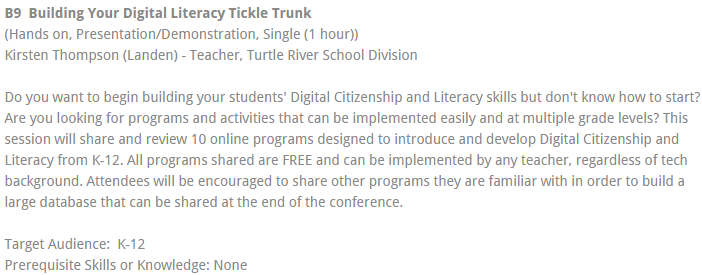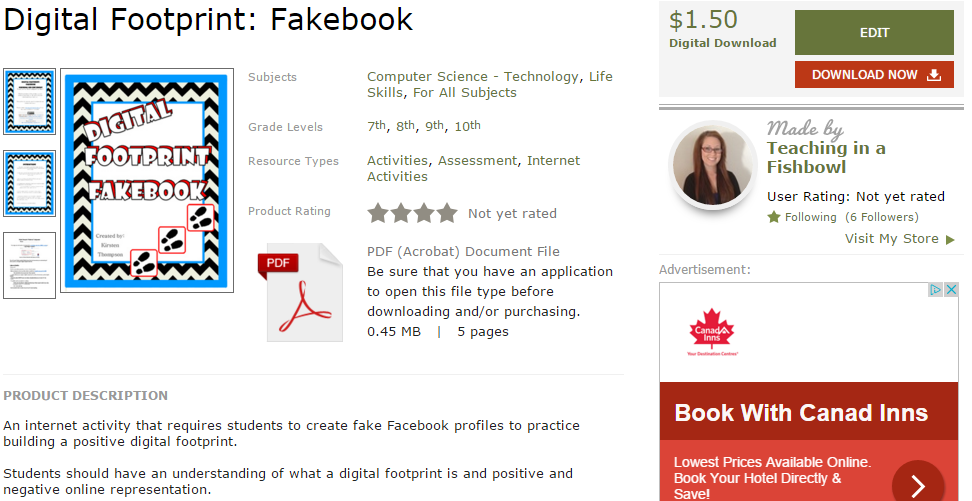Ever since our division was encouraged to join Twitter at the end of September I have been trying to keep participation going by posting weekly “Tweet Challenges“. This week’s challenge is: #TRSD32 Tweet Challenge of the Week: share 1 thing you took away from Friday’s PD Day & how you can use it this week. #PD #mbteach — Kirsten Thompson (@MissLwbt) February 29, 2016 – #TRSD32 Tweet Challenge for the Week of Oct 6th – #TRSD32 Tweet Challenge for the Week of Oct 13th – #TRSD32 Tweet Challenge for the Week of Oct 19th – #TRSD32 Tweet Challenge for the Week of Oct… Read More
Building Your Digital Literacy Tickle Trunk – BYTE Conference 2016
Three years after my first presentation at BYTE (with the wonderful Tyler) I was back at it again today sharing about digital literacy and citizenship at the 12th Annual BYTE Conference (which has now moved to Brandon after calling Neepawa home for many years). It was so energizing to be back in a classroom setting after almost 8 months and connecting and sharing with so many enthusiastic and inspiring educators! It was a very busy day but I was happy to reconnect with many of my favourite Tweeps like Andy, John, Zoe, John, and probably many more that… Read More
Digital Footprint: Fakebook Assignment
Our students are considered “digital natives” and have most likely had an online presence since birth (thanks to enthusiastic parents and family members). Their digital footprints are more deeply rooted then ever before and it is vital that they are aware of their own digital footprint and how to ensure that they are positively representing themselves online. You can head over to the Teaching in a Fishbowl TpT Store to download this activity for FREE!
Indigenizing the Curriculum
As professionals tasked with the education of Canadian youth, educators require understanding of First Nations, Metis, and Inuit practices, in order to effectively apply appropriate pedagogy within their classrooms. Deyhle, Swisher, Stevens, and Galvan (2008, p. 344) illustrate the process in which Indigenous peoples of North America have fought towards building an educational model that addresses the biases found in current models and strives to reshape education from an epistemological perspective. The authors’ lament over the multiple instances of cultural genocide through post-colonial education systems and call for a shift to self-determination in Indigenous education (Deyhle et al,… Read More
How Does Theory Help Curriculum Development?
The curriculum development process can be organized into four, seven, or more steps depending on which model and theorist the development plan is based on (Ornstein & Hunkins, 2013, pg. 13). Regardless of the model that is chosen, curricularists need to recognize that curriculum development is a lengthy process that requires professionals to make judgements to best serve the social and political realities of their situation while meeting the needs of a diverse group of learners (Ornstein & Hunkins, 2013, pg. 13). A strong theoretical background is essential for curricularist to ensure that their curriculum development is backed by the… Read More

